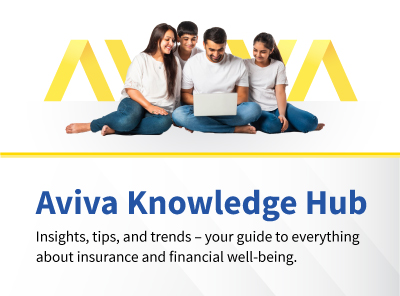Investing Mistakes to Avoid While Planning Your Retirement

A lot of us are left feeling extremely perplexed when it comes to planning for our future goals. Especially when it comes to something like retirement planning, it can be confusing to know where to start. If you too, feel unprepared when it comes to being retirement ready, don’t worry. It isn’t too late.
While you might have come across a retirement planning guide from us and others, here are some of the common retirement investment mistakes to avoid that people make when it comes to planning their investment and the steps you can take to improve your retirement readiness.
1. Not having a plan and making saving a priority
It is really important to have a retirement investment plan in place for yourself. While most of us do understand how essential it is, it can be easy to put off. Because other priorities come in the way, retirement planning can be forgotten. Because of other more pressing demands such as saving for college and debt, retirement planning can take a backseat.
How can you change this? The key is to make retirement planning and saving a financial priority
Self-reflect, and think about questions such as;
- How much can I save each year?
- Am I taking advantage of every saving opportunity?
- Can I save more?
Also Read: Are You Too Young to Think About Retirement?
2. Not saving enough or not saving now
Compound interest can help you maximise your savings. But this means the longer you save, and the more you put into your saving and investments every month, the better. Time and Compound Interest are best friends. In the case of retirement financial planning, the longer your money accumulates the better; which essentially means that the earlier to start, irrespective of your age, the longer you will have to create a good enough corpus to yield returns .
Cut back on expenses wherever you can and prioritise saving and investments to have enough of a nest egg later. It’s simple- Be sure to invest in the future, and reap higher benefits.
3. Not investing smartly
No matter where you invest, make sure that in your retirement investment plan you trust reliable sources, and not invest blindly without doing proper research. Don’t risk all your savings by putting them into one fund. Diversifying your investments is always a good idea. Investing too conservatively can also be a mistake. If you’re going for long term investment, make some investments in assets with higher returns such as stocks. Stocks can help you combat inflation and also help you grow your purchasing power because they deliver higher returns. Some see stocks as being too risky, but if you have a long time horizon such as decades and are always thinking about where to invest today, you can put some of your assets into stocks.
As you near retirement, advisors recommend moving your money into more conservative investments, so that you can be more certain that your money will be there when you need it.
Also Read: How to Withdraw Pension?
4. Not taking care of debt
Increasing your debt ahead of retirement can have an adverse affect on your savings. Ensure that you have an emergency fund to avoid any last minute debt or spending from your retirement savings. Experts also advise that you should not stop saving for retirement to pay off your debt. Find a way to balance both.
5. Not planning for health costs
Health insurance might not cover all your retirement health expenses. So ensure that your retirement savings include enough to be able to take care of any unexpected costs that come up. Either plan to buy supplemental insurance to cover this or be prepared to pay the difference out of pocket.
The above is our retirement financial advice to you. No matter where you are in the retirement savings journey, you may have made some mistakes along the way. If you haven’t been saving enough, try to save more starting now and get back on track. Our range of retirement plans are curated to help you though this journey and our experts are a call away to guide you in making the right choices as per your needs.
6. Not focusing on long-term Goals
One of the most common investment mistakes to avoid is losing sight of long-term financial goals. While managing day-to-day expenses and short-term needs is essential, ignoring long-term objectives like retirement planning, children's education, or buying a home can lead to financial instability in the future. Without a clear vision of where you want to be financially in the coming years, your savings and investments may lack direction. This can result in missed opportunities for wealth creation and inadequate funds during critical life stages. Long-term goals act as a roadmap, helping you make informed decisions, build disciplined savings habits, and choose suitable investment options. Map out your long-term financial goals, what you want to accomplish in the next 10, 20, or 30 years. Consider starting to let the power of compounding to work in your favor, enabling wealth accumulation over time.
7. Early Withdrawal from EPF
Early withdrawal from the Employees' Provident Fund (EPF) is allowed under certain conditions but comes with defined rules and specifications. EPF is intended as a long-term savings scheme to support employees after retirement, so withdrawing funds before maturity should be a last resort. Partial withdrawals are permitted for purposes such as medical emergencies, home purchase, education, or unemployment after two months. However, if the withdrawal is made before completing five continuous years of service, the amount may become taxable. Additionally, frequent early withdrawals reduce the final corpus available at retirement, affecting long-term financial security. It's essential to evaluate all alternative options before opting for early EPF withdrawal. You should consider it only in genuine need. Understand the rules and implications of the EPF scheme to make a financially sound decision while safeguarding your future savings.
Investing Mistakes Related FAQs
What are the most common retirement planning mistakes?
Common retirement planning mistakes include starting too late, underestimating future expenses, relying solely on employer pension plans, and not accounting for inflation or medical costs. Others include failing to diversify investments, withdrawing savings prematurely, and not reviewing plans regularly. Avoiding these helps ensure a secure and stress-free retirement.
How much should I save early for retirement?
Ideally, you should aim to save at least 15–20% of your annual income starting in your 20s or 30s for retirement. The earlier you start, the more you benefit from compounding returns. A good rule of thumb is to have saved at least 1x your annual salary by age 30, 3x by 40, and 6x by 50.
How do I prepare for health expenses in retirement?
To prepare for health expenses in retirement, start by investing in a comprehensive health insurance policy with lifetime renewability. Consider purchasing a top-up or critical illness cover as a supplement. Build a dedicated health emergency fund early, and factor healthcare inflation into your retirement planning. Staying fit and going for regular health checkups can also help reduce long-term medical costs.
How does inflation impact retirement savings?
Inflation reduces the purchasing power of your money over time, which means that the amount you save today may not be enough to maintain your lifestyle in retirement. As the cost of goods and services rises, your retirement corpus needs to grow accordingly. Failing to account for inflation can result in a shortfall during your non-earning years. Therefore, it's important to invest in options that offer inflation-beating returns and regularly review your retirement plan to ensure it stays aligned with future cost increases.
Should I rely on EPF and PPF for retirement?
EPF (Employees' Provident Fund) and PPF (Public Provident Fund) are reliable and safe options for building a retirement corpus, but they may not be sufficient on their own. While both offer tax benefits and steady returns, they often fall short in beating inflation and supporting long-term financial needs post-retirement. To ensure a comfortable retirement, it's wise to supplement them with additional investments like mutual funds, annuity plans, or NPS (National Pension System), based on your risk appetite and retirement goals. Diversifying your retirement portfolio can help provide better growth and stability in the long run.
Related Articles:
AN July 16/22
Popular Searches
- Term Insurance Plan
- Term Insurance Age Limit
- Term Insurance with Maturity Benefit
- Term Plan in your 30s
- Term Plan Benefits
- Zero Cost Term Insurance
- Ideal Coverage Amount for Term Insurance
- Term Insurance Riders
- What is Term Insurance
- Types of Life Insurance
- Term Insurance with Return of Premium
- Group Life Insurance
- Saral Jeevan Bima
- Life Insurance Plans
- Benefits of Life Insurance
- Life insurance vs Health Insurance
- Life Insurance vs Annuity
- Types of Life Insurance
- What is Life Insurance
- Sum Assured
- Endowment Plans
- Health Insurance Plans
- Cancer Insurance
- Child Insurance Plans
- Cash Value Life Insurance
- Savings Plan
- Guaranteed Savings Plan
- Short Term Investment Plans
- Pension Plans in India
- ULIP Plan
- ULIP Meaning
- ULIP and Riders Options
- ULIP Plan Tax Benefit
- ULIP Benefits
- What is Annuity
 :
:  :
: 
